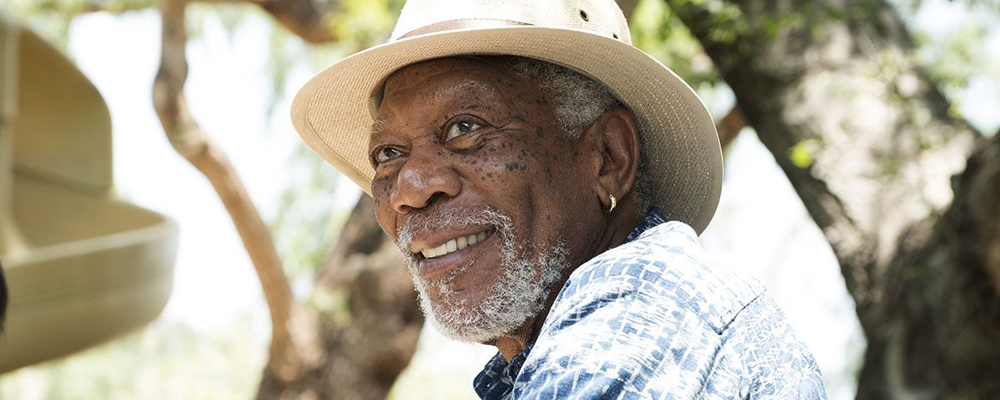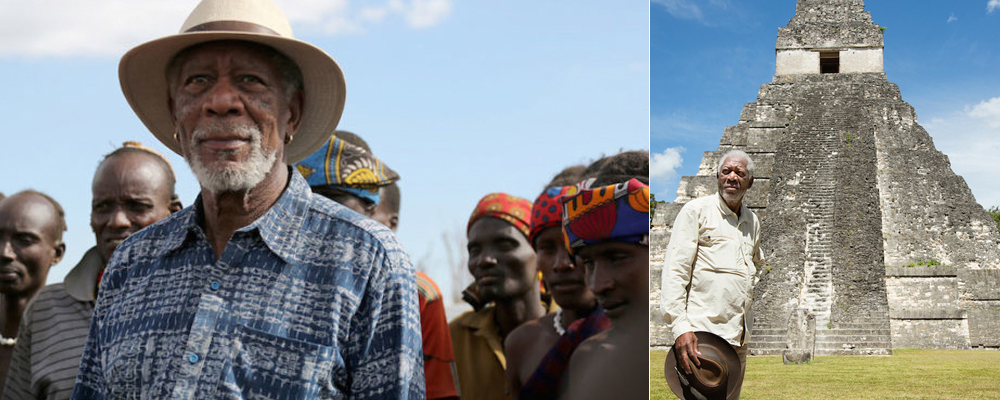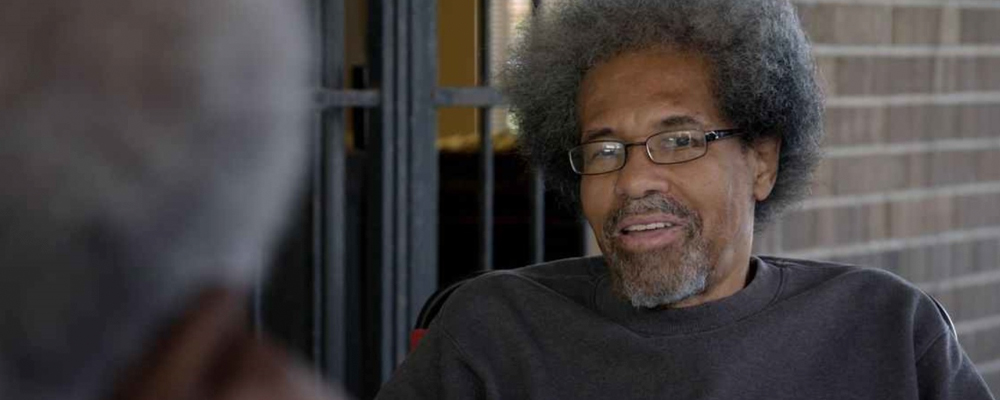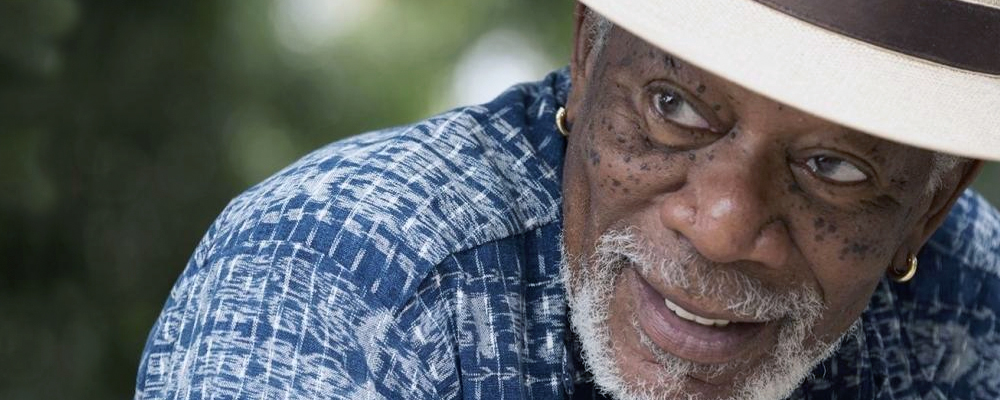Morgan Freeman Brings Humanity to Divisive World Events on Nat Geo’s ‘The Story of Us’
Tony Sokol
Morgan Freeman is the comforting voice of authority. Even on Comedy Central’s irreverent comedy “South Park,” the veteran actor is one of a handful of actors treated with any kind of respect. In Freeman’s case, he is given extra special treatment because of his job. Whenever something convoluted needs an explanation, Freeman appears to bring understanding to the confused. Every time he enlightens someone he earns a freckle. In National Geographic’s new series “The Story of Us With Morgan Freeman,” he not only explains, but expands.
The six-hour-long episode miniseries takes on complicated stories that come out of dark and dangerous places, but the producers’ mission is to showcase “the ties that bind us and the common humanity that binds us,” Morgan explains in an episode’s opening. The host is no talking head. He walks across Abbey Road in London, past Beatles graffiti, to tell how lives are built around love. He is present during emotional reunions and even watches people as they fall in love in the span of an episode. Frightening, and doesn’t only tell the stories of the world. He’s got a world of stories of his own, like being barred from engineering duty in the Navy while he served, to put an even more human face on the investigations.
War and peace are cycles of destruction and rebirth. In one episode Freeman shines a light on the ritualized combat of Bolivia’s sacred Tinku festival. He shows the reconciliation program that followed the genocide in Rwanda. He explores Romania’s state orphanages, where children were sent based on their parent’s wealth. Life in an institution in Romania is not only colorless, it is almost devoid of light. The orphanages could hold up to 400 to 500 children. All the best research and the best knowledge on traumatic childhoods can’t replace the power of a simple hug, Morgan finds. He is visually pleased to accept the simplest and most positive of solutions. He is also unafraid to look into rejection, destruction and violence, but always with an eye toward harmony.
Freeman also isn’t afraid to call out unexpected evils. At one point he comes across a small village’s ritual, one that he has given a big buildup to due to the country’s terrain and how hard it is to farm there, and labels it abuse. But he’s not content with name calling. He’s got to get to the center of it. And he is not about to impose his own nature onto a resisting subject. Everything is made understandable, even if it is unforgivable. War spurs technology and innovation as much as the search for knowledge, and Freeman wants to know why.
The episodes are broken down in acts, not chapters, and the episodes build like Greek tragedies with hope at the end as well as a lesson. In the episode “The March of Freedom,” we are shown rage and redemption in the midst of harsh injustice. Albert Woodfox, for example, has been in solitary confinement since April 1972, as one of a trio of inmates who killed a corrections officer at the Louisiana State Penitentiary.
Freeman is an amazing interviewer. He is filled with concern for the oppressed and consternation for the oppressors. But Morgan Freeman is not here to cast judgement. He just wants to explain it.
“The Story of Us With Morgan Freeman” premieres Wednesday, Oct. 11 on National Geographic.




